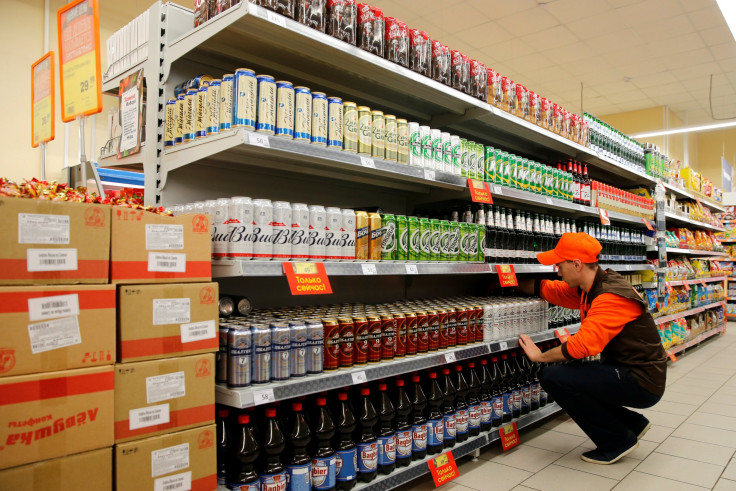Russia Sanctions Update: Kremlin's Embargo On Western Food Imports Could End Soon

Russians might soon find imported cheese back on grocery shelves. The country’s embargo on food imports from Western nations could be coming to an end, Russia’s deputy prime minister said on Friday.
“The time has probably come to understand that the sanctions may soon be halted,” Deputy Prime Minister Igor Shuvalov said at a Moscow economic conference, the Moscow Times reported.
The embargo, which the Kremlin instituted in response to Western sanctions and extended in June, is scheduled to conclude at the end of 2017. It has reduced food options and increased prices at the same time the Russian economy was shrinking, due in part to sanctions and plummeting oil prices. The embargo banned fruit, vegetables, milk, fish, and meat imports from the U.S., the EU, Australia, Canada and Norway.
According to Shuvalov, the embargo was a boon to Russian farmers, but the country should get ready for the embargo to end.
“All players on the market should be prepared for [the embargo's cancelation],” Shuvalov said. However, he left open the possibility that the embargo could be extended again. “Whether they’ll be extended or not – that’s a question of politics."
The embargo began in the summer of 2014 in retaliation for sanctions that targeted Russia's energy industry. Those sanctions were imposed by the West on Russia for its invasion of Crimea in the Ukraine. Russians expressed shock when their government destroyed large amounts of food in connection with the embargo, which included burning bacon and bulldozing cheese. A year after the embargo began, a man was stopped at the border with Poland for trying to bring a half-ton of cheese into Russia.
While the embargo and sanctions have made life harder for most Russians, the country's economy is poised for a rebound. Industrial production increased in 2016 and the IMF predicted 1.5 percent GDP growth over the next five years. While that is below the expected growth rate for the global economy as a whole, it represents a marked increase after two years of negative 3 percent growth.
© Copyright IBTimes 2024. All rights reserved.





















